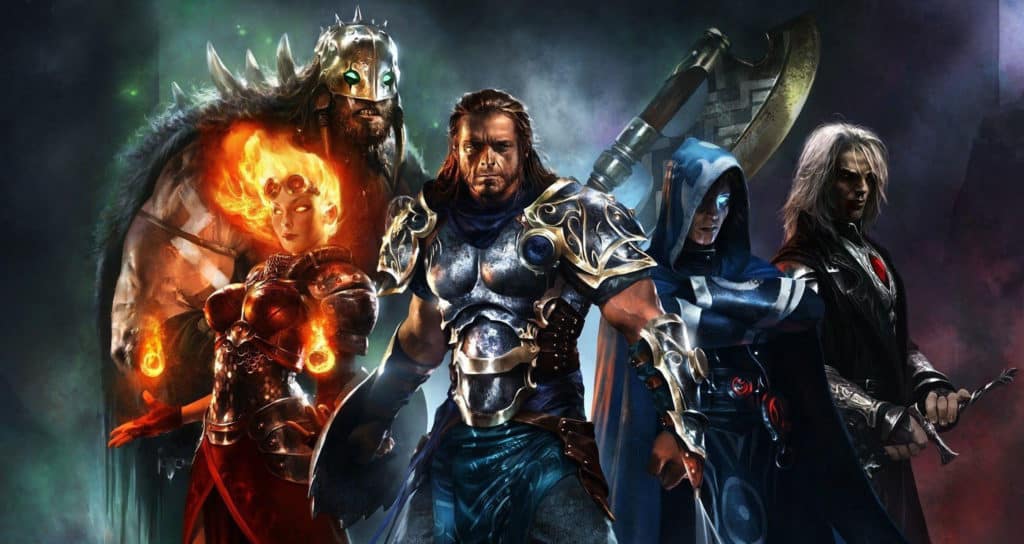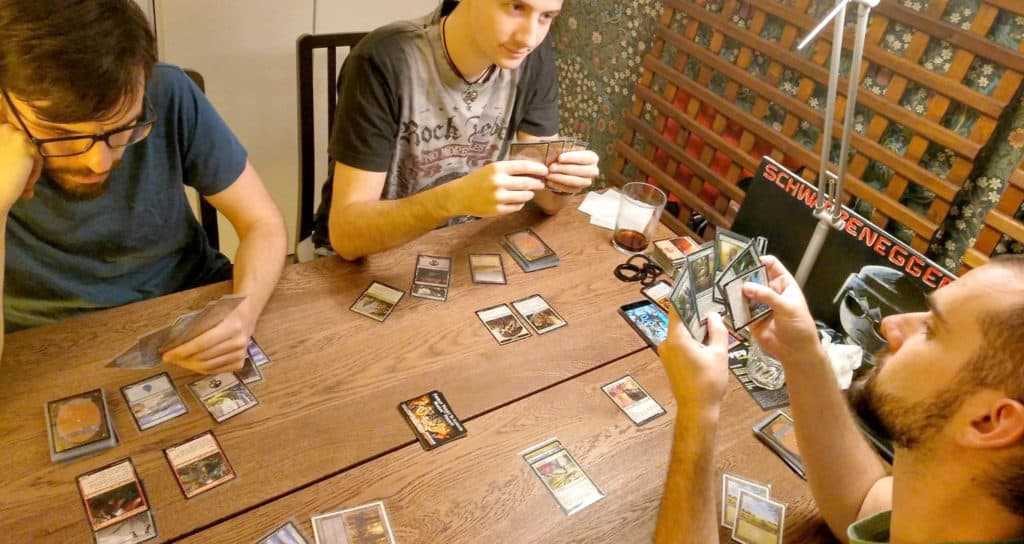Contents
Magic: The Gathering – A Good Game For Autistic Children

Autism is a developmental disorder characterized by difficulties with social interaction and communication, and by restricted and repetitive behavior. While they may be severely impaired in some respects, they may be superior in others. Children with autism, however, tend to be highly intelligent and creative.
Studies also show that those with autism are up to 40% faster than non-autistic people at problem-solving. They also seem to have a keen eye for detail.
Finding a hobby that can help a child with autism develop and nurture these characteristics will significantly aid their development.
Magic: The Gathering is a collectible and digital collectible card game created by Richard Garfield and a good choice for a hobby. With approximately 35 million players and over 20 billion Magic cards, it has been described as one of the most complex games in the world.
It is an entertaining and stimulating strategy game that has many layers and can be played on various levels of complexity.
The gameplay of Magic: The Gathering changes constantly, keeping the interest of kids who start out playing the game as a hobby which is why it often develops into a serious interest that could last a lifetime.
As it offers them opportunities for personal transformation through symbolic and social engagement, Magic: The Gathering could be a good game for Autistic children.
The Artwork & World-Building of Magic: The Gathering
It has already been established that Art Therapy is a field that is becoming more prominent in the context of treating children with ASD.
Creative artistic intervention encourages the child to connect with the outside world and the people that inhabit it. The artwork of MGT cards and its fantasy world-building can pique the interest of children, enrich their imagination, and also inspire creativity.
It could serve as a starting point to help autistic children to get into painting, sketching, or sculpture.
Social interaction With Magic: The Gathering

Magic: The Gathering has a kind of social magic between strangers as it provides an opportunity for creating friendships over a shared interest. Local Game Shops (LGS) often become the venue for lower levels of organized play, supported by the Wizards Play Network, providing an atmosphere for casual play.
These can offer children with autism an opportunity to socialize and form friendships with like-minded people in a structured, less intimidating setting.
Over time this could help children with autism to develop their interpersonal skills and their ability to relate and empathize with others.
Problem-Solving Skills With Magic: The Gathering
Playing Magic: The Gathering can also be good for autistic children as it provides them an opportunity to use their problem-solving skills. In the American Journal of Play, Autumn M. Dodge discusses MGT as not only a card game but as situated in New Literacies as a Discourse and community practice with rich, complex, and multimodal literacy practices.
The author describes the game as a rich complex literacy tool that can foster important literacy practices in ts players.
The gameplay and the use of specialized vocabulary to help gain entry to the community practice of Magic provides a platform for potential development through problem-solving under adult guidance or in collaboration with a more-seasoned player.
So playing Magic: the Gathering can not only be a satisfying intellectual outlet but can also sharpen their problem-solving abilities in the long run.
Coping With Unexpected Scenarios In Magic: The Gathering
One of the biggest challenges autistic children face is coping with unexpected scenarios. The gameplay and deck building of MGT involves a series of rules and mechanics that often spring unexpected scenarios that autistic children can imagine and respond to. Further, plans to create a Magic: The Gathering massively multiplayer online role-playing game has also be announced. Research on ASD illustrates that the structure of the roleplaying games set up a situation in which children are able to engage in sustained, coordinated, and spontaneous social practices, far more than was typical of their everyday lives.
Magic: The Gathering’s Autistic Planeswalker
Most of us love fantasy because we find characters that are in some ways relatable to us doing heroic acts we wish we could. The popularity of the black superhero Black Panther or the booking Hermoine in the Harry Potter novels is because a lot of people are able to identify with them.
For an autistic child, finding a relatable character in fantasy storylines could be quite difficult as there aren’t many. But that’s exactly what they will find in the character Narset, Magic: The Gathering’s autistic planeswalker.
Narset is a human planeswalker and a master of martial arts, and according to the storyline, a former Khan of the Takir plane inspired by the history and cultures of eastern Asia.
According to Doug Beyer, a writer and designer for Magic: The Gathering,
“the most important part of Narset’s character is her amazing mind, which is central to her potential as a powerful Planeswalker and as a pursuer of knowledge — but it happens that she processes information and input differently than a lot of other people. Tarkir denizens might not have a term for the autism spectrum or being neurodivergent or neuro-atypical, but those terms would correctly describe her.”
In a story posted on Wizards online, the character Narset speaks in the first person describing her experience of growing up:
“I found solace in my own mind and often had difficulty knowing how to talk to others. It was as though my mind was always five steps ahead of my mouth. It was so taxing interacting with others. I never knew what to say, often causing me to blunder, and I was embarrassed in front of my teachers and classmates.”
This representation matters as people are able to see themselves in what they are playing. The writers at Wizards of the Coast, the publisher of the game do an exceptional job in creating characters that represent different kinds of people without making parts of them the whole.
Instead of resorting to tokenism to make their fans happy, they have thoughtfully considered all aspects of who a person can be.
The combination of game mechanics, aesthetics, and story elements elevate MTG’s learning experience beyond what most games can offer. And these make Magic: The Gathering a good game for autistic children and is recommendable to parents, educators, and childcare workers everywhere.